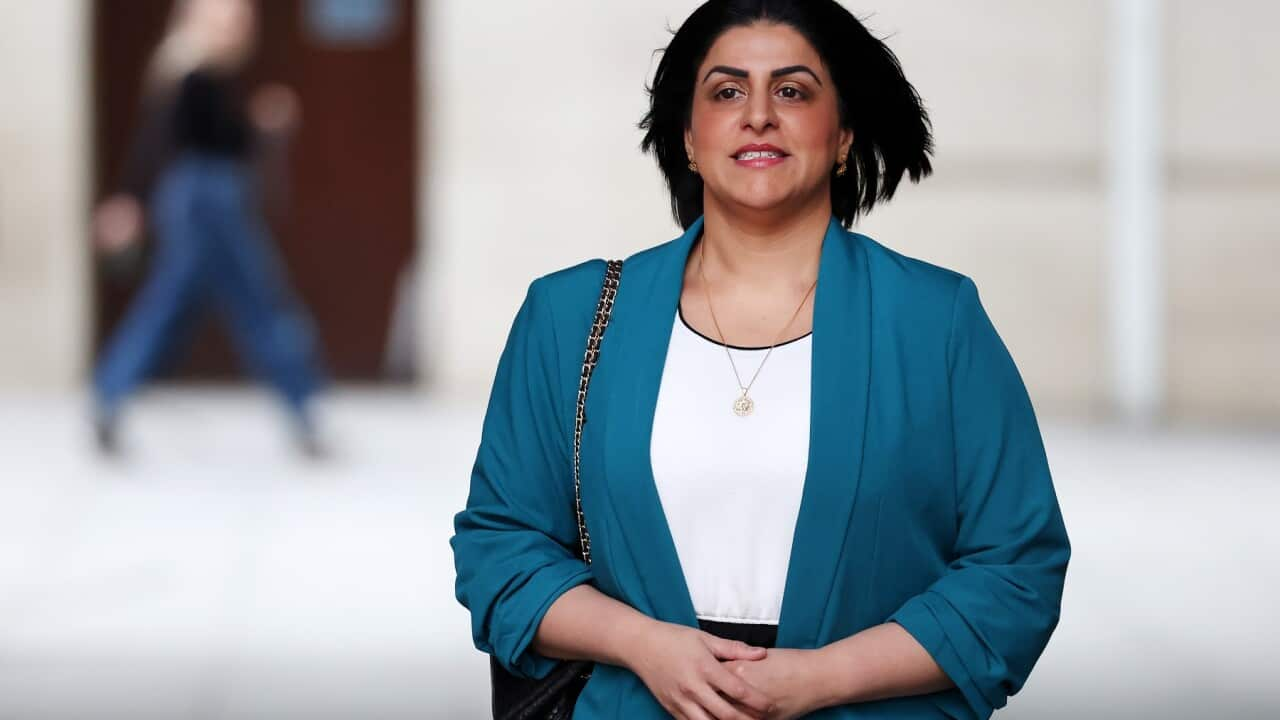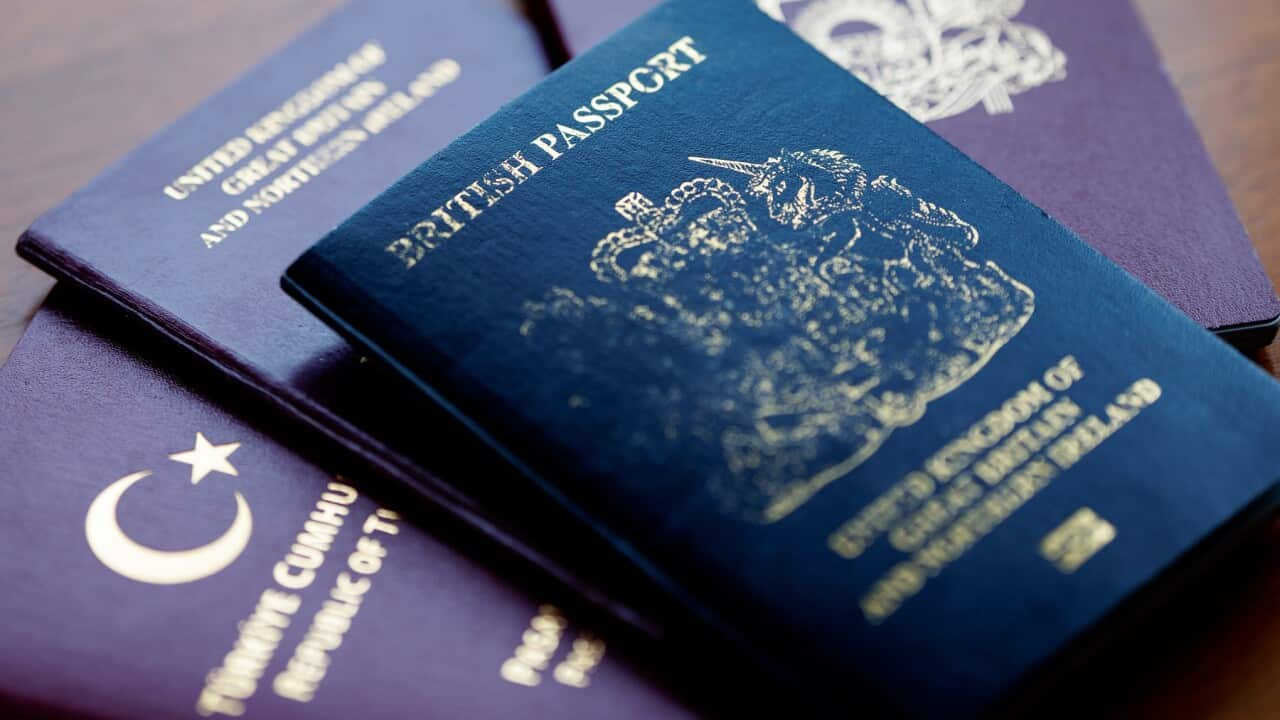Listen to Australian and world news and follow trending topics with SBS News Podcasts.
TRANSCRIPT
For months, there have been protests and rallies, demonstrating against asylum seekers in Britain.
More than 109,000 people claimed asylum in the UK in the year ending March 2025, a 17 per cent rise on the previous year and six per cent above the 2002 peak [[of 103,081]].
Now, sweeping changes have been announced to Britain's controversial asylum system as polls show immigration has overtaken the economy as voters' top concern.
Interior Minister Shabana Mahmood told the BBC the government was tackling a critical issue.
"It is important that we deal with illegal migration into this country. It is an issue that is dividing our country, and I see this polarisation all over the country, including in my own constituency. We have a system that is out of control, it's unfair and is putting huge pressure on communities."
The Home Office says the statutory duty to provide housing support and allowances to certain asylum seekers will be revoked, refugee status will become temporary and subject to regular review, and those granted asylum will have to wait 20 years before even being able to apply for permanency.
Shabana Mahmood again.
"What the new reforms will do is change that generations-old assumption that sanctuary provided to refugees can very quickly lead to permanent settlement and all of the rights that go alongside that. We will be changing that to a more temporary process, and the situation will be assessed every two and a half years. So if your country becomes safe in that intervening period and you are remaining on this essentially core protection model, you will be returned to your country."
She also says there will be new routes for asylum seekers to be able to work while in the U-K.
"If you are working and contributing, you will be able to earn an earlier settlement in this country and the totality of that package will promote fairness and contribution."
The formal announcement has not taken anyone by surprise.
Earlier this year, a delegation of senior Home Office officials visited Copenhagen to study Denmark's approach to asylum, where migrants are only granted temporary residence permits, usually for two years, and must reapply when these expire.
Since coming to power in 2019, Prime Minister Mette Frederiksen has pursued a "zero refugee" policy.
The Home Office says the approach has reduced asylum claims to a 40-year low and resulted in the removal of 95 per cent of rejected applicants.
Just 860 asylum requests were granted last year.
The decline in Denmark comes as the European Union is preparing plans on how they will implement overhauled rules for asylum seekers to be operational in mid-2026.
Back in Britain, Shabana Mahmood says the new policy is not about turning away people who need help.
"We still believe very strongly, and I believe that we must provide sanctuary (to) those who are fleeing wars and danger and conflict abroad. We still want to be a country that does that. But at the moment, our system is particularly generous compared to other countries in Europe, where after five years, you'll be automatically settled in this country, we will change that."
The Labour government has been hardening its immigration policies as it seeks to stem the surging popularity of the populist Reform UK party, which has driven the immigration agenda and forced Labour to adopt a tougher line.
While some government MPs have welcomed the changes, others have privately expressed concerns the policy could create division in the community and push Labour voters towards the Greens.
The opposition Conservative Party is calling for the reforms to go further, as Shadow Home Secretary Chris Philp told the BBC.
"I don't think these proposals are radical enough at all. Legal and illegal immigration is in danger of breaking Britain. We need radical solutions to that, including coming out of the ECHR so we can then deport every single illegal arrival within a week of their feet touching the shore. Stop paying benefits to foreign citizens and making sure the people who come here illegally can't claim asylum at all."
The government says the changes are designed to reduce the so-called "pull factors" by making Britain less attractive to would-be asylum seekers.
But advocates are horrified.
Chief Executive of Britain's Refugee Council Enver Solomon told the BBC the plan would fail.
"This policy will not stop the boats, it will not deter people. Refugees flee for their lives, and they go to countries where they may know people, family, they can speak the language or because of historical connections. So this policy will fall flat on its face."
More than 100 British charities have written to the Home Secretary, urging her to end what they've called the scapegoating of migrants and performative policies that only cause harm.
Anti-immigration sentiment has been growing in the UK, with recent protests taking place outside hotels sheltering asylum seekers with state funding.
Their letter says such steps are only fuelling racism and violence.
''The pernicious and insidious currents of racism and hatred underlying these protests are glaring evidence of a failing system. The responsibility to end the divisive politics, racist rhetoric and demonising language of the past is yours. Only then will you bring unity instead of division and cohesion rather than hate.”













